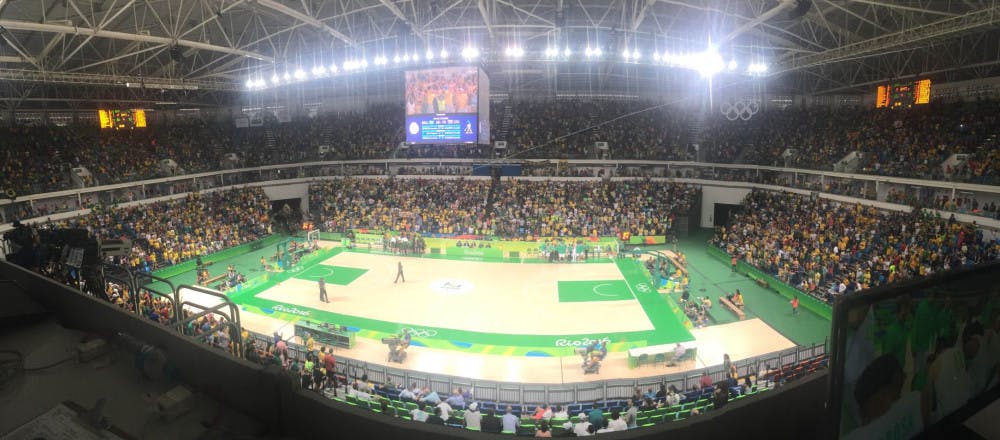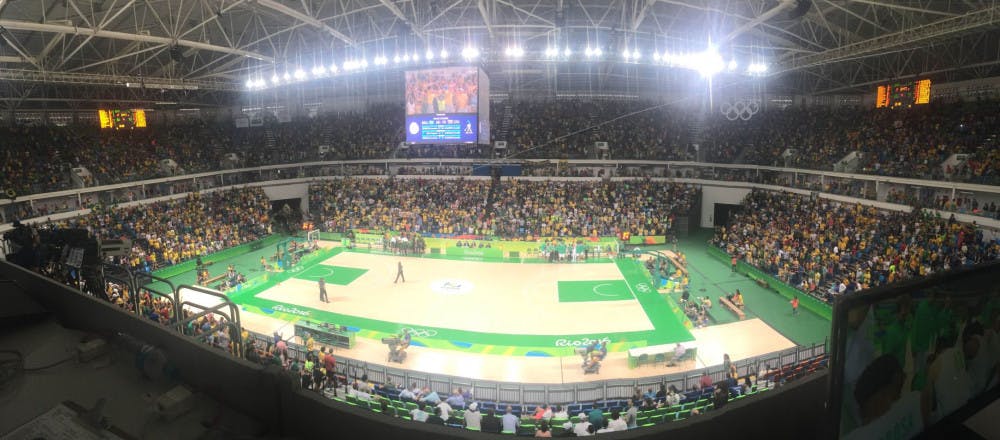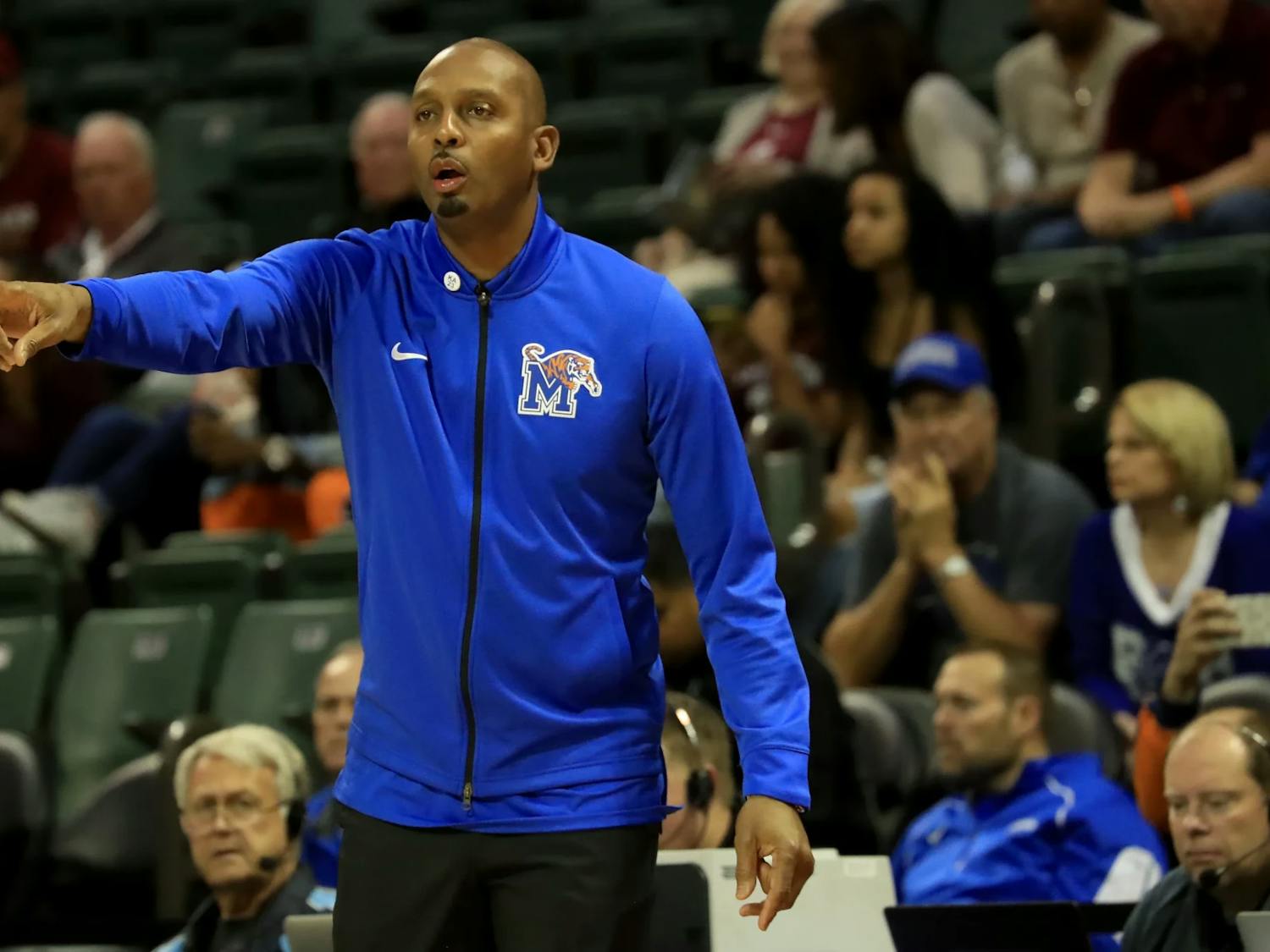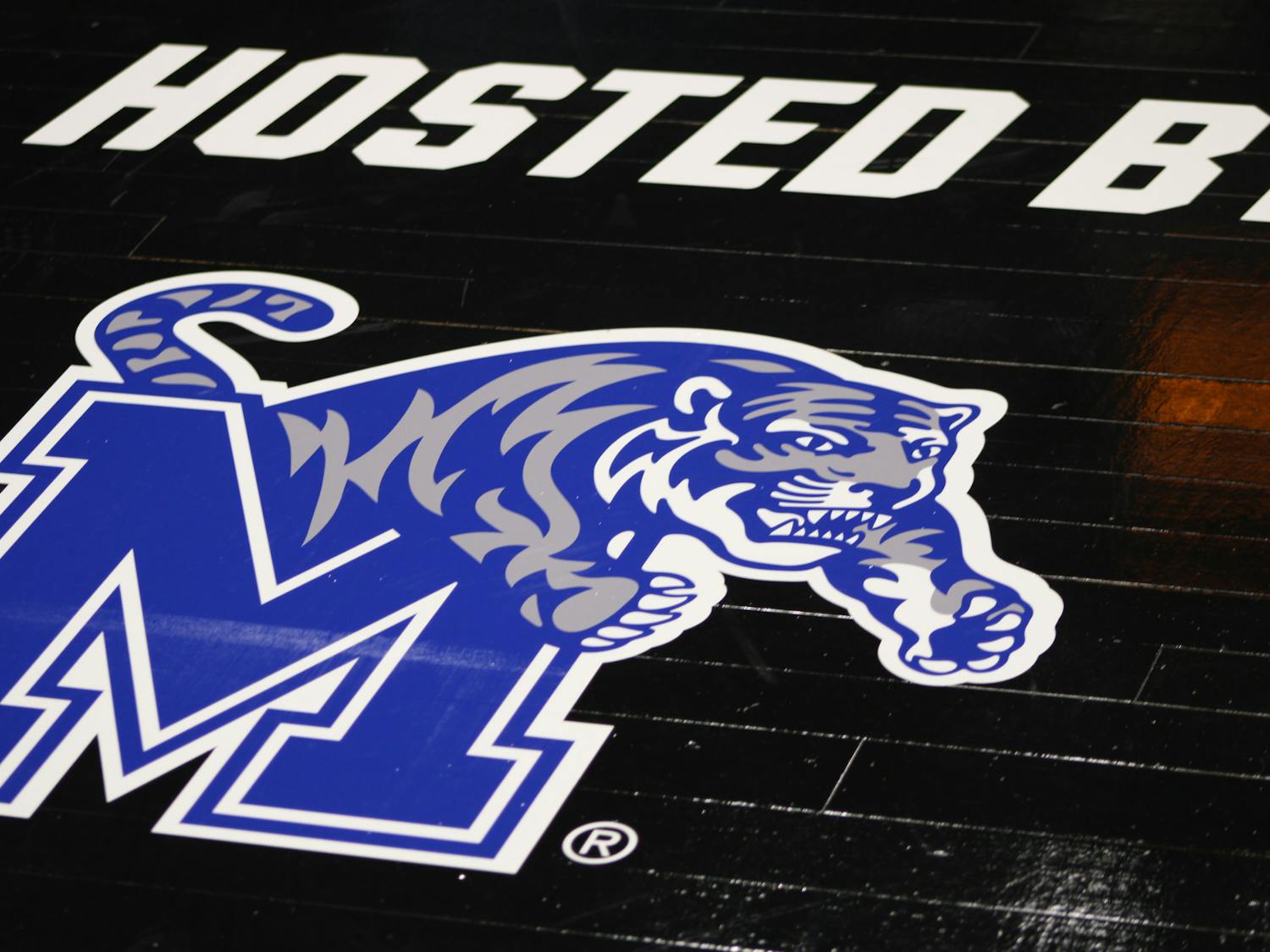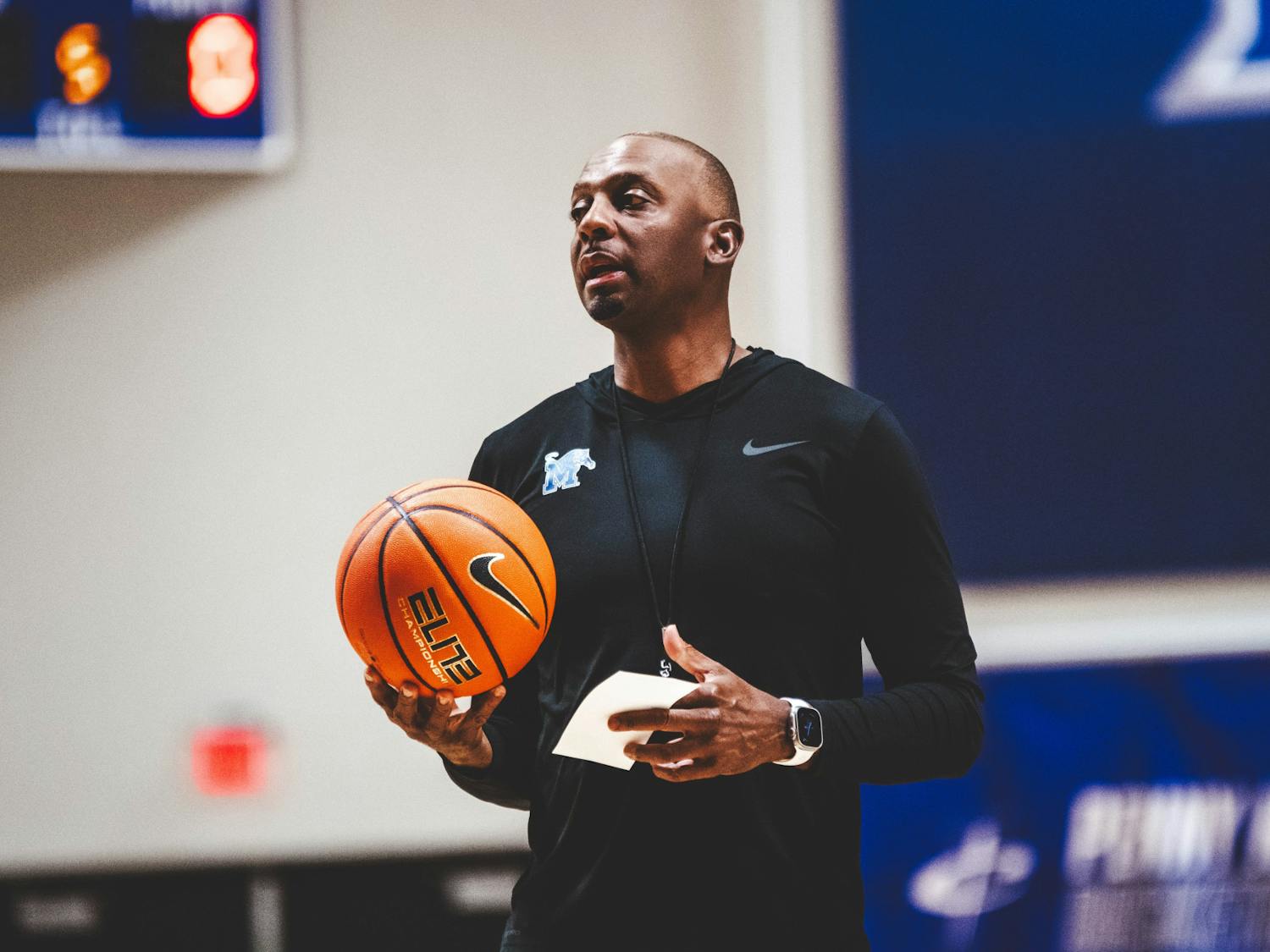I stood up from my desk and walked toward the far corner of the room where a silver, hand-operated pencil sharper was mounted against the wall.
Mrs. McCall, my second grade teacher at Presbyterian Day School, just announced it was time for my least favorite part of the day - journal time.
Every day she would assign a topic to write in our journal about, and she would grade it. I despised this time. I didn't want to write; I didn’t like to write, and I could not understand why this lady forced me on a daily basis to write about some topic that I didn’t care about. Plus, it had to be a full sheet of notebook paper long, and my hand would always cramp up.Â
Reluctantly, I inserted my pencil and turned the silver sharpener a few times until my point was just how I wanted it.
As I made my way back toward my desk, I looked at the board to see what the day's topic was.Â
‘Free’ was written in white chalk where the daily topic would normally be. Everybody was confused. What’s free?
Mrs. McCall proceeded to explain that on free topic days, we could write about whatever we wanted to - whatever was on our mind.
As much as I didn’t like writing, I thought to myself that I could write about the only thing that was ever on my mind: sports, and more specifically, the 2000 Olympic Games in Sydney.Â
I went to work writing everything I could possibly think of that pertained to the Olympic Games.
***
The bus was packed - so packed that I couldn’t get a seat so I had to stand and clutch on to a yellow PVC pipe that hung above my head, hoping that it was sturdy enough to withstand my entire body weight being tossed around by the bus that was being driven by a man who appeared be in quite a hurry.
One thing they didn’t warn us about Rio de Janeiro was the driving. Clearly these people have places to be, and they’re all running five minutes late.Â
It was the night of the opening ceremony, and I think most of the 14 University of Memphis students were a little disappointed that we weren’t able to be there for the extravagant celebration of the world’s games.Â
We all had already been to the venues where we were going to be spending the next two weeks covering a variety of sports.
In some ways I felt lucky. I was getting to cover basketball, a sport that I had already spent several years covering and a lifetime watching. But at the time, I was mildly disappointed that I wasn't going to be able to see Usain Bolt run the 100-meter dash or Michael Phelps swim the breaststroke or Simone Biles perform moves on at mat that only she can do - the more traditional Olympic sports.Â
Nevertheless, I got basketball, and I couldn’t have been much happier about it - even if it wasn’t what one would normally consider a traditional Olympic sport.
***
It's the day before the opening ceremony, and I’m on my way to a training session for France where the press are allowed to speak with players after.Â
Before the session begins, I spend time on a computer in the press operations room researching every basketball player France brought with them to the Rio 2016 Olympic Games, looking for an angle that no one else would have.Â
After going through many of the well-known players and not finding anything, I came across a player named Kim Tillie.Â
Tillie had a family that I found to be very interesting. His brother was also at the Olympic Games as a part of France’s men’s volleyball team that was coached by Tillie’s father. Upon further digging, I discovered that Tillie’s mother was a captain for the Dutch women’s volleyball team and his uncle was an Olympic water polo player for France during the same time his father went to the Olympics as a volleyball player for France.
One family had two generation of brothers going to the Olympic Games together - not something you see every day.
I decided that’s what I was going to talk with Tillie about, and that’s what I wanted to write about that evening.
Tillie seemed a bit surprised when I began to ask about his family, but he was very open to talking about his incredibly athletic family. He gave me enough to write my first news article as a member of the Olympic News Service that night.
***
I was still clutching onto the PVC pipe, hoping not to get thrown into the lap of another person on the bus at the next red light.
We were on our way to Copacabana Beach after a failed attempt to visit the Christ the Redeemer statue, but we did end up with a nice consolation prize in getting to go to the top of Sugarloaf Mountain which overlooks Rio. The view was stunning.
As we got close to our restaurant, I felt a vibrate in my left pocket coming from my work phone which we were given to stay in touch with our sports writers, who were our bosses during the Olympic Games. I decided to take one hand off the pipe and check my phone just in case my sports writer was telling me something important about our first day of games the next day.
When I pulled my phone out of my pocket, I saw a text from my sports writer saying that the story I wrote about Kim Tillie and his family had been picked up my olympic.org and was on the front page.
I couldn’t believe it. Something I wrote had gotten picked up by the official website for the Olympic Games.
At that moment, I just stopped and reflected on the fact that writing got me to Rio de Janeiro, Brazil to watch the Olympics - something that wasn’t even in my wildest dreams as a kid.
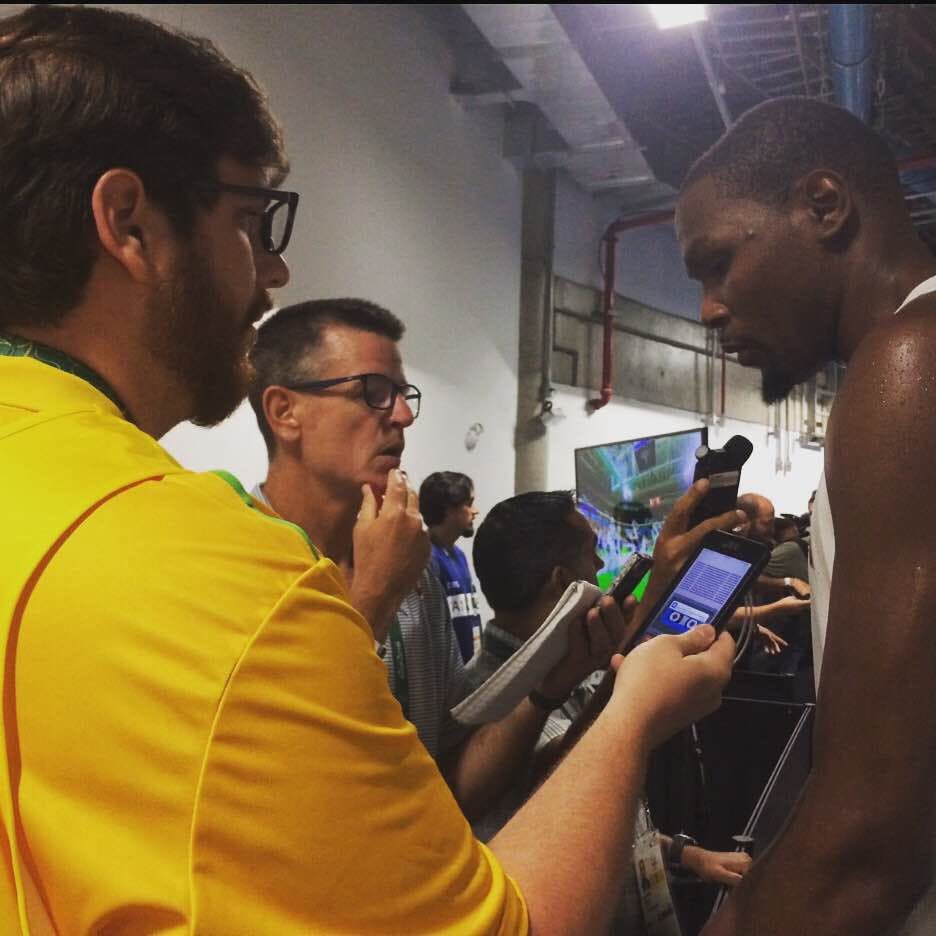
***
Mrs. McCall came around after a several minutes to read everyone’s journal entry for the day. She picked mine up and wrote on my paper, ‘GO USA! This is your best journal yet!’
“Maybe this writing thing isn’t so bad after all,†I remember thinking to myself.

